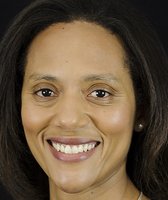Stand up for the facts!
Our only agenda is to publish the truth so you can be an informed participant in democracy.
We need your help.
I would like to contribute
Bill Maher and conservative political commentator S.E. Cupp clashed over the certainty in the scientific community about the relationship between climate change and hurricanes.
As Hurricane Irma wreaked havoc in the Caribbean and later in Florida, Maher declared it time to talk about climate change on Real Time with Bill Maher on Sept. 8, 2017. "If you’re going to accept federal aid for a storm, shouldn’t you also accept the science on climate change?" Maher asked.
Cupp said that while she agrees that humans are causing climate change, it should be acceptable to debate what impact human activity has in causing specific weather events.
"I don’t know if hurricanes are caused by climate change. Every scientist I read this week said they don’t cause them, but they’re probably making them more intense," Cupp said. "What part of the human roots of climate change are responsible for creating intenser storms? I think that’s a question that is unanswered by science."
"No. That’s not right," Maher responded.
Sign up for PolitiFact texts
The scientific community is indeed wrestling with these questions. Not everything is settled.
We previously wrote about the relationship between Hurricane Harvey and climate change, and none of the experts we talked to said climate change caused Hurricane Harvey, and they’re not claiming it caused Irma either. Instead, they posit that climate change exacerbated the effects of the storm. But there’s some dissent as to what degree.
The verdict on hurricanes overall (rather than specific case studies) was a little more definitive. A draft report on climate science conducted by 13 federal agencies as part of the National Climate Assessment said models showed the number of very intense storms has been rising as a result of a warmer world. But the trend has yet to rise above normal variation. In other words, scientists require more data, which in this case is unfortunately hurricanes.
Attributing specific weather events to climate change
Adam Gopnik of The New Yorker took part in the same conversation with Cupp and Maher.
"The basis of scientific inquiry is asking questions," Gopnik said to Cupp. "The result of scientific inquiry is having answers. This is a subject on which we now have answers."
"Some answers," Cupp interjected.
"Excuse me, S.E.," Gopnik said, "we have all the answers we need." Maher agreed.
However, that isn’t so clear when it comes to attributing individual weather events to climate change.
"The evidence regarding the influence on individual hurricanes in the present, though I think it is enough to infer some degree of influence, remains subject to much greater debate in the scientific community," said Adam Sobel, a professor of applied physics and applied mathematics and of earth and environmental sciences at Columbia University.
The graphic below, from the National Academy of Sciences, shows the consensus in the scientific community on the capability of attributing different types and specific instances of extreme weather events to climate change.
The bottom axis measures how confident scientists are about understanding how climate change is altering a specific type of weather event. The left axis measures how confident scientists are in saying climate change is causing specific weather events.
Tropical cyclones (hurricanes) score pretty low on both scales. In other words, it’s far from settled.
Competing evidence?
Gopnik, in the HBO show, continued making his point with evidence from a scientific paper.
"In 2006, as long ago as that, there was in Science, one of the leading journals, there was a paper saying what will happen if this continues is, you will have an immediate backflow between warming oceans and increasing hurricanes," Gopnik explained. "They made a very, highly specific prediction which turned out to be absolutely true. They made the prediction that as the oceans warmed you would have more and more severe hurricanes."
"Exactly," Maher said
We asked Gopnik and Maher about the paper Gopnik cited, but have yet to hear back. We then turned to scientists, who pointed to Nature and Science articles making a similar point.
Sobel said Gopnik’s statement goes beyond what existing evidence can justify.
"I don't believe these papers made ‘highly specific’ predictions, nor that since 1970 we have had ‘an endlessly growing cycle of more and more severe hurricanes.’ I don't think that is a defensible characterization of the observations," Sobel said.
Phil Klotzbach, a research scientist at the Department of Atmospheric Science at Colorado State University, said Gopnik was likely referring to the Science paper (albeit from 2005) that showed a doubling in the number of Category 4-5 hurricanes from 1970-74 through 2000-04.
Klotzbach reviewed the paper alongside Chris Landsea, science and operations officer at the National Hurricane Center, and said that the frequency increase observed in the paper was too large to be explained by the 0.5 degree celsius increase in sea surface temperature during this time.
He also noticed a large jump in frequency in the late 1980s, which coincided with the period of time when most of the world finally got directly overlooking satellites. Prior to that time, storms looked weaker because they could only be observed at an oblique angle.
Landsea and Klotzbach expect small increases in the frequency of intense hurricanes, but said it was too soon to be able to observe such stark results.
Cupp’s counter also flawed
Cupp rebuffed Gopnik’s argument using anecdotal evidence.
"I’m sorry, we just went through an unprecedented 12-year gap of no Category 3 hurricanes hitting landfall," Cupp said.
"S.E., that is bad science," Gopnik said.
"That’s just bad reporting," Maher said.
But as Cupp responded to further resistance from Gopnik and Maher, "That’s a fact." According to the National Hurricane Center, the last time a Category 3 hurricane made landfall in the United States was Hurricane Wilma in October 2005. That was 11 years and 10 months ago.
No matter, experts say it’s still a problematic counterargument.
Other storms may not have made landfall as above-Category 3 hurricanes in the United States, but they still ravaged other parts of the region. And only about 10 percent of hurricanes worldwide are seen in the Atlantic region.
Scientists looking at the impact of climate change on weather events focus on storms that both made landfall and didn’t – all over the world.
"We (in the United States) got lucky for 11 years, that’s the end of it," Sobel said. "None in 11 years and two in two weeks, but neither proves anything."
What’s clear is that there’s more where they came from.
Scientists expect the intensity of storms to rise and overall frequency to decrease slightly as the number of more intense storms (Category 3, 4 and 5) increase slightly. But that’s expected to happen by the end of the century, and until studies are performed on Hurricanes Harvey and Irma, it’s impossible to pinpoint these storms as the result of some climate shift.
Gavin Schmidt, director of the NASA Goddard Institute for Space Studies, said that instead of waiting for attribution studies to be performed on Irma, we should focus on the vulnerability and resilience of our coastal cities.
As Gopnik echoed, "We don’t have to know everything to know what is vital to do."
"Impacts are not just physical (rain, floods, wind) but also societal – who gets to evacuate, power system vulnerability and outages, hospitals right on the shore line, contamination of water supplies, food availability, property markets, etc.," Schmidt said. "These are the same things that are going to be stressed with 2 or 3 feet of sea level rise, too."
Our Sources
Mediaite, S.E. Cupp Accuses Maher of Emboldening ‘Blowhards Like Rush Limbaugh’ in Clash Over Climate Change, Sept. 8, 2017
PolitiFact, What do we know about the relationship between climate change and Hurricane Harvey?, Aug. 31, 2017
Sciencemag.org, Changes in Tropical Cyclone Number, Duration, and Intensity in a Warming Environment, Sept. 16, 2005
American Meteorological Society, Extremely Intense Hurricanes: Revisiting Webster et al. (2005) after 10 Years, Oct. 10, 2015
Nature, Increasing destructiveness of tropical cyclones over the past 30 years, July 31, 2005
National Academy of Science, Attribution of Extreme Weather Events in the Context of Climate Change, 2016
Email interview with Scott Weaver, Environmental Defense Fund senior climate scientist, Sept. 11, 2017
Email interview with Gavin Schmidt, Director of the NASA Goddard Institute for Space Studies, Sept. 11, 2017
Email interview with Phil Klotzbach, research scientist at the Department of Atmospheric Science at Colorado State University, Sept. 11, 2017
Phone interview with Adam Sobel, professor of applied physics and applied mathematics and of earth and environmental sciences at Columbia University, Sept. 11, 2017
Phone interview with Suzana Camargo, Executive Director at Columbia University’s Initiative on Extreme Weather and Climate, Sept. 11, 2017
Email interview with Kevin Trenberth, Distinguished Senior Scientist in the Climate Analysis Section at the National Center for Atmospheric Research, Sept. 11, 2017
Email interview with Maureen O'Leary, National Oceanic and Atmospheric Association spokeswoman, Sept. 11, 2017


 PolitiFact Rating:
PolitiFact Rating: 
 PolitiFact Rating:
PolitiFact Rating: 










































